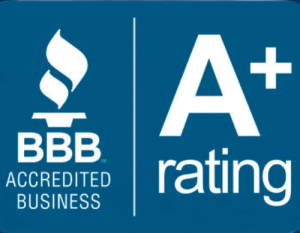If you are looking for a new water heater, you might have heard about “hybrid water heaters.” But what are they, and how do they work? In this blog post, we’ll explain the basics of hybrid water heaters, their benefits, and what to consider before installing one.
You might also want to read:
Benefits of Air to Water Heat Pumps
On How To Drain And Preserve Your Hot Water Tank
What is a Hybrid Water Heater?
A hybrid water heater uses a heat pump to heat water during average or low usage periods, similar to how a heat pump water heater works. However, it switches from the heat pump to conventional electrical resistance heating during high usage periods. This is where the term ‘hybrid’ comes from—heat pump heating during regular times and traditional heating during peak times.
Hybrid water heaters are typically air-to-water heat pumps, extracting heat energy from the surrounding air and transferring it to the hot water tank. Other varieties encompass water-to-water systems that extract thermal energy from a water source like a lake, river, or geothermal system, and convey that heat to the domestic water heater.
Why Consider a Hybrid Water Heater?

A hybrid water heater uses energy-efficient heat pump technology to extract heat from the air, leading to substantial energy savings. These heaters provide a steady hot water supply with quick recovery rates and various operating modes. They are adaptable, simple to set up, and can be integrated into pre-existing areas or heater rooms.
How Does a Hybrid Water Heater Work?

A hybrid water heater, also known as a heat pump water heater, operates by using heat from the outside air. It pulls in air and passes it over an evaporator coil filled with refrigerant, and the coil absorbs heat from the air. A heat exchanger then transfers this heat to the water in the tank, ensuring you have hot water.
You can also choose an air-source heat pump system, which efficiently combines space heating and cooling with water heating.
Differences Between Hybrid and Traditional Water Heaters
Traditional water heaters heat water from the bottom, allowing heat to rise through the tank. While this warms the water, much heat escapes from the top. Tankless water heaters also heat from the bottom but lack a reservoir, delivering hot water directly through copper pipes.
Hybrid water heaters, like tankless models, don’t run continuously. Nonetheless, they possess a reservoir that holds warm water for domestic usage. The critical distinction is that hybrid versions extract heat from the atmosphere and convey it to the water, enhancing efficiency.
Hybrid Water Heater Installation
When it’s time to get a water heater installation, consider these points:
- Ensure the location maintains temperatures between 40°F and 90°F year-round.
- Allow at least 1,000 cubic feet of air space surrounding the heater, with adequate height.
- Ensure a condensate drain or pump is available.
- Opt for a plumber with expertise in hybrid water heaters since this technology is comparatively recent.
- To avoid using the inefficient auxiliary heat mode, choose a unit with a slightly larger water tank than is usually recommended for your home.
- Opt for a hybrid water heater with an intelligent thermostat for energy conservation and a reliable hot water supply.
- Consider installing a water heater in a room with surplus heat, such as a furnace room, for improved efficiency.
What to Consider Before Purchasing a Hybrid Water Heater
Hybrid models can be a great option when choosing your next water heater. However, consider the following factors before making your purchase:
- Power Requirements: Check the model's requirements to ensure adequate power is available in your water heater location. If you have any questions, ask an electrician.
- Location Suitability: Determine if your location is suitable for a hybrid water heater.
- Adequate Ventilation: Most tanks must be installed in a room measuring at least 700 cubic feet (e.g., 7' x 10' x 10'). Alternatively, the water heater can be ducted to a larger space or outside.
- Sufficient Height: Hybrid water heater tanks are taller than traditional electric tanks, so ensure your space meets the manufacturer's height requirements.
- Adjacent Spaces: Hybrid water heaters can be noisier than conventional models and, if not ducted, will exhaust cold air into the immediate area. Ensure the tank is not installed in a location that will negatively impact your home's comfort.
Hybrid Water Heater Pros and Cons
Pros:
- Energy Efficiency: Hybrid water heaters are approximately four times more efficient than standard ones, decreasing energy expenses.
- Environmentally Friendly: These heaters have energy-efficient compressors that reduce your home's carbon footprint.
- Incentives: Governments and utility companies frequently provide incentives for adopting this technology, including rebates and tax credits.
Cons:
- Space Requirement: Hybrid water heaters include a tank; thus, they are unsuitable for households with limited space.
- Climate Dependency: They perform best in temperate climates, relying on warm ambient air.
- Electricity Dependency: Homes with gas appliances may necessitate complex retrofits for installation.
Do Hybrid Water Heaters Deplete Hot Water Supply?
Hybrid water heaters come with a tank, guaranteeing a consistent hot water supply during normal usage. They transition to electric heating components during high demand, momentarily employing a supplementary heat mode to cater to the heightened need.
What is the Lifespan of Hybrid Water Heaters?
On average, hybrid water heaters have a lifespan of 13 to 15 years, which is longer than the 8 to 12 years typical of conventional electric water heaters. Their extended durability and energy efficiency make them a wise choice.
Can Hybrid Water Heaters Function in Cold Weather?
Their electric heating components allow hybrid water heaters to function even in chilly conditions. For best results, position the heater in a space that is either unconditioned or semi-conditioned, ensuring the temperature remains above 50°F throughout the year. Look for models that meet Northern Climate Efficiency Specifications for better efficiency in colder climates.
How Noisy Are Hybrid Water Heaters?
Hybrid water heaters produce noise levels between 40 and 80 decibels, with most units around 50-55 decibels. This noise level is similar to typical household sounds and is generally not disruptive. If noise is a concern, consider installing a water heater in a sound-insulated area.
Is a Hybrid Water Heater Right for Me?
A hybrid water heater can be an excellent choice for some households. They require more space than tankless models so that they could be better for small spaces. Hybrid water heaters also need a warm or mild climate to operate efficiently, as they draw heat from the outside air and don’t perform well in cold temperatures. Additionally, homes with gas water heaters or other gas appliances may face significant retrofitting costs since they are electric.
Is It Worth Getting a Hybrid Water Heater?

Hybrid water heaters are a good option for all-electric homes with enough space and a mild climate. Despite the higher initial cost, government incentives and energy savings over the unit’s longer lifespan make them a cost-effective and eco-friendly investment.
Ready to switch to a hybrid water heater? Contact Knowledge HVAC & Refrigeration to explore your options and schedule a water heater installation. With this advanced technology, you can enjoy energy savings, reliable hot water, and a reduced carbon footprint. Make the right choice for your home today!







